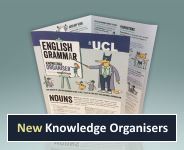Topic: Noun
Nouns are a very important word class, and are often (but not always) words for people, places and things. They can be marked as plural or possessive.
Englicious contains many resources for English language in schools, but the vast majority of them require you to register and log in first. For more information, see What is Englicious?

